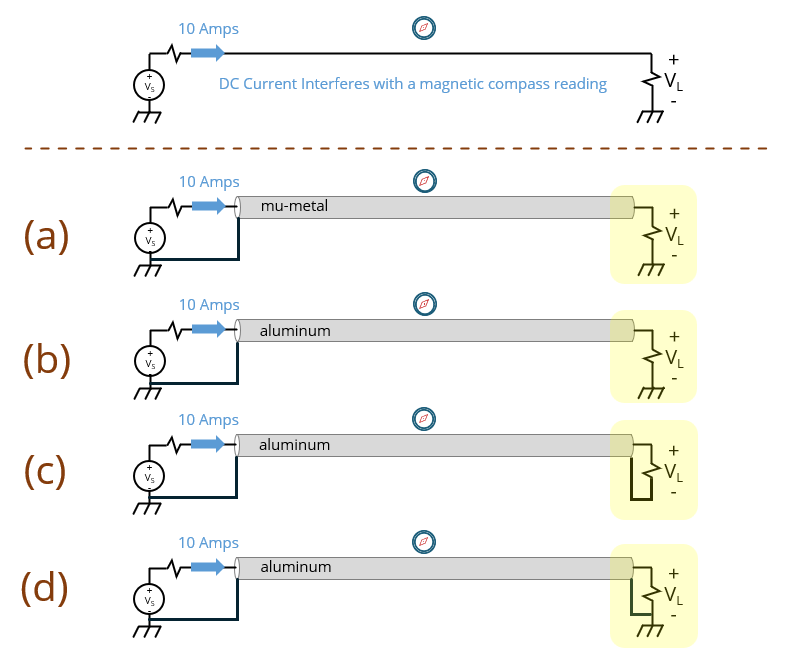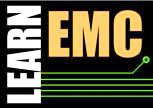EMC Question of the Week: January 29, 2024

A wire carrying DC current runs too close to a compass and affects the reading. A shield is wrapped around the wire and connected to the frame ground at the source end. Which of the following shield material and far-end connections options will work best?
- mu-metal shield, not connected at far end
- aluminum shield, connected to frame at far end
- aluminum shield, connected to load at far end
- aluminum shield, connected to frame and load at far end
Answer
The best answer is “c.” If the DC current is forced to return on the shield, the magnetic field from the wire current is cancelled by the magnetic field from the shield current. In this case, there is virtually no magnetic field outside the shield.
A mu-metal shield that wraps the wire has no effect on the external magnetic field when there is no current flowing on the shield. Mu-metal is excellent for steering fields away from a particular area, but in this configuration (wrapping the wire) it is not redirecting any of the interfering field. [Note that a large flat sheet of mu-metal between the wire and the compass could be used to reduce the interference, but the mu-metal itself could interfere with the compass if it was located too near.]
Grounding the aluminum shield to the frame at the far end allows some (perhaps most) of the DC current to return on the frame. This would reduce the current flowing in the shield. If the current in the shield does not equal the current in the wire, the magnetic field from the wire is not completely cancelled.
Have a comment or question regarding this solution? We'd like to hear from you. Email us at
